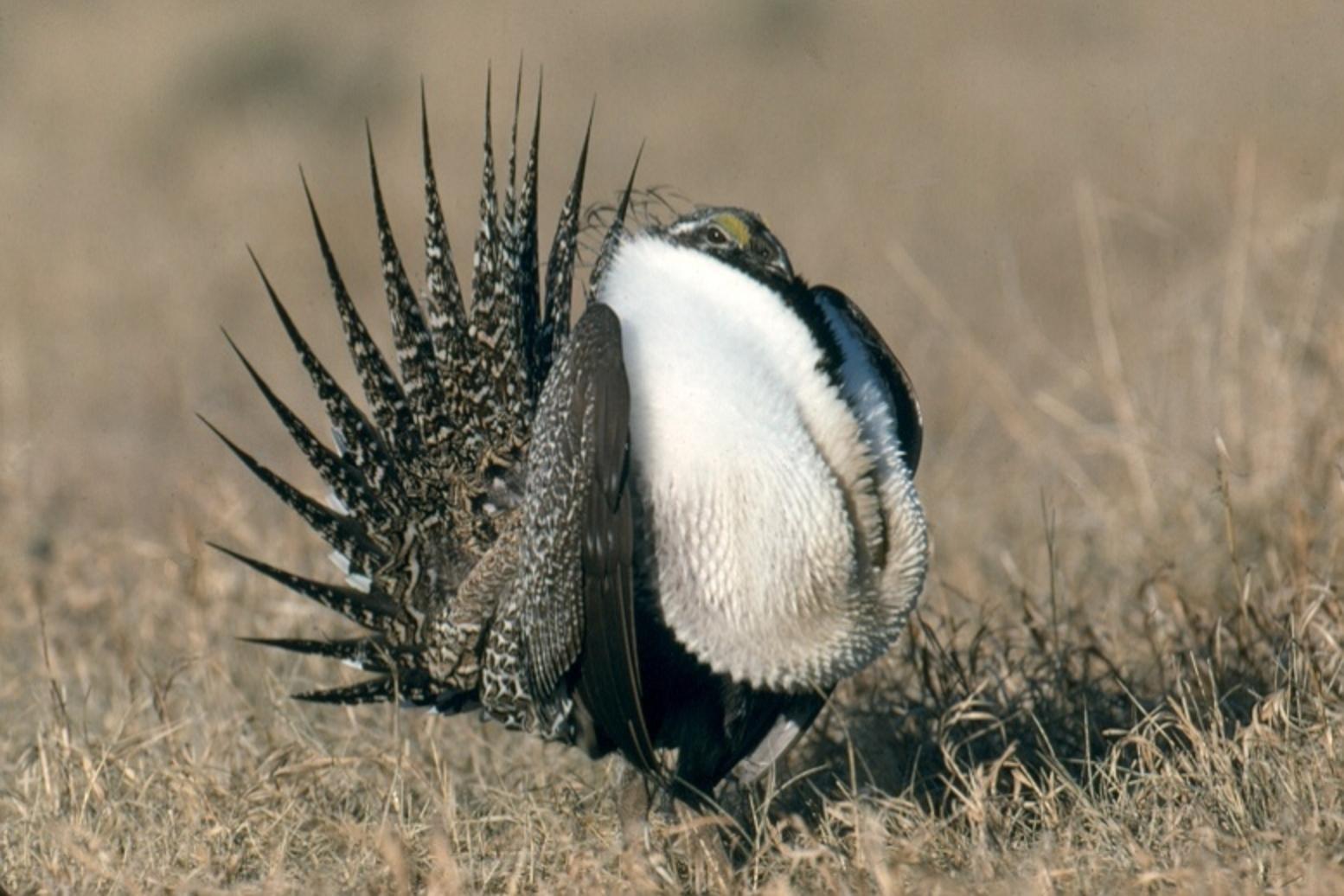Back to StoriesBLM Amends Management Plans for Sage-Grouse Habitat
September 12, 2024
BLM Amends Management Plans for Sage-Grouse Habitat Mounting concerns over population numbers prompt reevaluation of protections across 10 western states.
by Sophie
Tsairis
A 2021 U.S. Geological Survey study
revealed a staggering 80 percent decline in the greater sage-grouse
population since 1965. Nearly 40 percent of that decline has occurred since
2002.
Now, the Bureau of Land Management is
responding by building on previous sage-grouse management plans to account for updated findings and provide more
robust protections for the species while allowing for continued multiple use on
BLM lands.
In March 2024, the BLM
outlined six options for moving forward. “Alternatives in the proposal build on the most successful
components of the plans that the BLM adopted in 2015 and updated in 2019,” the agency wrote. “The draft plan
incorporates new sage-grouse conservation science and lessons learned,
accommodating changing resources conditions while increasing implementation
flexibility.”
The alarming trend in sage-grouse
populations has the public concerned, according to a June 2024 Pew Charitable Trusts poll
showing strong voter support for enhanced protections for the species.
The poll of over 600 participants
showed strong public support for increasing sage-grouse protections. More than
90 percent of respondents said protecting the bird’s habitat is somewhat or
very important.
“The BLM is amending
its sage-grouse plans, originally developed in 2015, to consider new
science—including the effects of increasing temperatures and other stressors on
the bird—in determining how best to conserve sage-grouse habitat on public
lands across 10 Western states,” Pew reported.
More than 90 percent of respondents in a June Pew Charitable Trusts poll said protecting the bird’s habitat is somewhat or very important.
Pat Deibert, national sage-grouse conservation coordinator
for BLM, told Mountain Journal the agency is
currently sifting through around 38,000 public comments on its draft Resource Management Plan Amendment and Environmental Impact Statement, and is tweaking its
final EIS, which, she said, will be released sometime in September. Deibert is
hopeful there will be a Record of Decision for each state by the end of the
year.
The amendment addresses updates to
RMPs across California, Colorado, Idaho, Montana, Nevada, North Dakota, Oregon,
South Dakota, Utah, and Wyoming.
“We will release the
final EIS, and then work with each individual state,” Deibert said. “This is an
overarching, range-wide EIS, but [one that] recognizes ecological differences
across the ranges and state-specific circumstances.”
Deibert said the main
topics addressed in the updates include connective populations to maintain
genetic flow across ranges, climate issues, and conserving the right habitats.
_______________________________________________________________________________________________________________________________
Mountain Journal is a nonprofit, public-interest journalism organization dedicated to covering the wildlife and wild lands of Greater Yellowstone. We take pride in our work, yet to keep bold, independent journalism free, we need your support. Please donate here. Thank you.
Related Stories
October 16, 2024
Single-Use Plastics Ban on Bozeman Ballot
Following an initial
disqualification, a ballot initiative on plastic bags proceeds to the polls in
November.
December 21, 2023
Two Wyoming Elk Feedgrounds in Limbo Amid CWD Concerns
As Wyoming Game and Fish assesses the viability of two Wyoming elk feedgrounds, concerns over the spread of chronic wasting disease...
October 31, 2023
Are Humans Killing More Grizzlies?
Since August, five Greater Yellowstone grizzlies have been killed by hunters and anglers in self-defense. Why?




